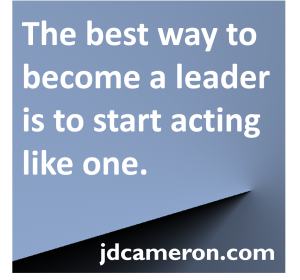How Decluttering Changed My Life
 Over the past 35 years I’ve moved my family from a 1400 sq. ft. home to a 3000 sq. ft. home and then to a 4000 sq. ft. home. During that time we started as a couple, added four kids, and launched them from our nest. Because each house was bigger, decluttering our “stuff” was never an issue. Now we are selling our house in Sugar Land (tour the house here) and moving to the Dallas – Fort Worth area to be closer to our kids and first grandbaby.
Over the past 35 years I’ve moved my family from a 1400 sq. ft. home to a 3000 sq. ft. home and then to a 4000 sq. ft. home. During that time we started as a couple, added four kids, and launched them from our nest. Because each house was bigger, decluttering our “stuff” was never an issue. Now we are selling our house in Sugar Land (tour the house here) and moving to the Dallas – Fort Worth area to be closer to our kids and first grandbaby.
How do I let go of 35 years’ worth of accumulated memories, mementos, and stuff? My first approach was similar what many executives do: talk about the challenges in hopes that someone else would fix it. That cost me a month.
So I used a few methods from my consulting toolkit and came up with a new approach: briefly reflect about the failure of the first approach, and then create a vision, mission, and action steps for a new project called “Operation Declutter”. That cost me another month.
And then something amazing happened.
One evening I decided to invest 10 minutes and tackle one small section of my closet. I pulled some old dusty polo shirts off their hangers and put them in a plastic trash bag for Goodwill. That was fairly painless so I did another section, and two hours later my closet was transformed. I felt like a genius, and like a fool. I had avoided this simple task for months, dreading the effort, the personal decisions, and letting go.
Freshly energized, I dedicated every spare moment to decluttering the entire house. Raising four kids meant four bedrooms with closets stuffed with parts from a dozen video game systems, hundreds of VHS tapes, music CDs, DVD and Blu-ray movies, board games, and more. After 3 months of effort, renting a 10 foot square storage space, and many trips to Goodwill, we finally got our house ready to sell.
Let me share 3 quick learnings about decluttering that changed my life for the good, and that may change your business for the good:
1. Decluttering requires active leadership.
No matter how elegantly and passionately I talked about a perfect world where every closet was empty and every garage had space to park cars, my wife simply wouldn’t jump into action. Her inability to read my mind and find the energy to do what I didn’t want to do is completely understandable. What I learned was that by getting myself involved in the work, my wife was far more willing to face the challenge too. Together we accomplished a lot by decluttering our home, and we had fun doing it together.
What do I mean by ‘active leadership’? Recall that Peter F. Drucker said “Management is doing things right; leadership is doing the right things.” While the cute part is flipping those words around, don’t gloss over the word “doing”. Active leadership requires personal involvement to meet the needs of employees and customers (recall Robert K. Greenleaf’s “servant as leader” model). Actions really do speak louder than words (even when words come from well-meaning management). Sometimes it’s better to be engaged than to motivate engagement. “Lead by example” is worth remembering at home and at work.
2. Decluttering is a never-ending process.
While it’s true that decluttering your house every 10 years can be transformational, why not take time once a year (a.k.a. spring cleaning) and gain the benefits of decluttering all year long every year. The benefits of a cabinet in the garage filled with items that might be used sometime over the next decade can hide those go-to items that you really will need within a year or two. The effort required to put those tools back in their proper place, rather than stacking them on the floor, can also go a long way to keeping things manageable.
In the workplace, why not declare a day of spring cleaning by brainstorming a list of bottlenecks or time-wasters? Focus some energy on how to rebuild the business process around an ideal approach and see just how close you can get. Consider building a work culture that seeks to simplify processes and procedures, and consider the positive impact you can make on customers and partners too. A little self-discipline every day will pay off all year long and allow you to avoid those ‘special projects’ to unravel a pile of complex ‘stuff’.
3. Decluttering promotes innovation.
My closet was crammed with so many shirts, pants, suits, and sweaters patiently hanging around to be worn that I couldn’t figure out which items were long out of style or too tight for me to wear. After decluttering, every single article of clothing that hangs in my closet today fits me just fine, and I can quickly select the right attire for any occasion. I can once again park my car in the garage, protected from the sun and rain.
Complexity at work is never a good thing. Once you strip down work processes and procedures to their bare bones, you may well discover new ways to dramatically reduce bottlenecks, accelerate product delivery, and improve the quality of services. If you want ideas on how to simply the workplace, view the 2013 TED video where Yves Morieux shares 6 rules to simply complex work. When employees can brainstorm ways to declutter their jobs, not only are you creating streamlined processes, you are engaging employee and building a culture where organic change can thrive.
If you need help, I’m just a phone call away.


